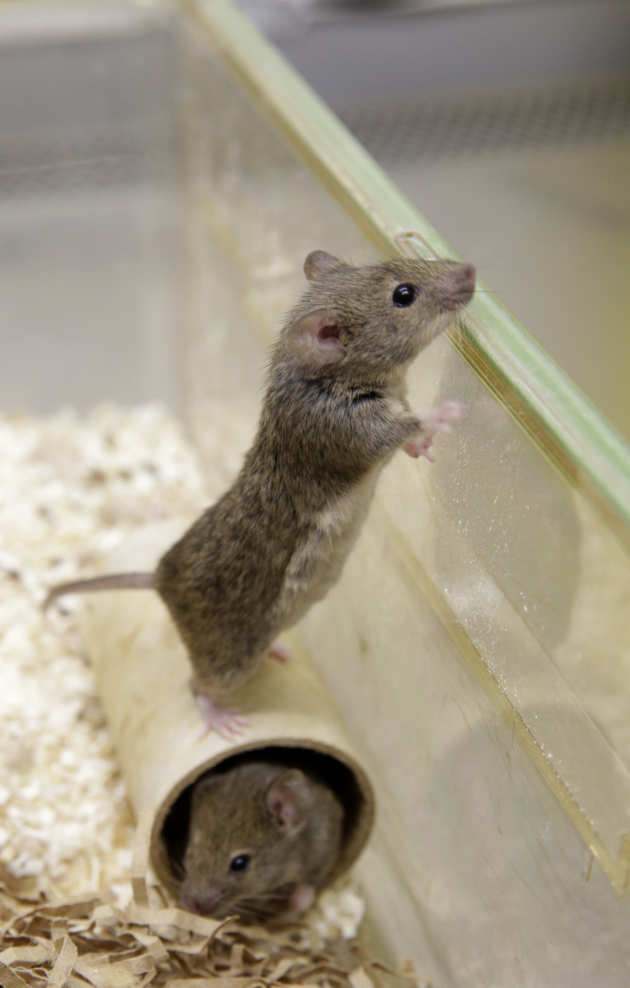Provost's Awards for Excellence in Animal Research
This award scheme was set up in 2014 to celebrate good practice by researcher and CBS staff currently working at Imperial.

Nomination for 2024 is now open. Deadline for submission is Friday 15 of March 2024.
The winners will receive £1000, and are encouraged to use part of the money to cover costs associated with the presentation of the award-winning work to a wider audience. These costs may include registration fees and travel fares to attend a conference, journal open access fees, or costs associated with developing or attending a public engagement event.
All nominees must be employed by or studying at Imperial at the time of the nomination and undertaking the nominated research or work at the College. Nominations can be made by yourself or by a colleague/manager.
Prize categories and eligibility criteria
Category 1: Application of the 3Rs in current or recent work - CBS staff
- The nomination relates to work that is ongoing or has been completed within the last 12 months.
- The nominee is a member of CBS staff.
Category 2: Application of the 3Rs in current or recent research - researchers
- The nomination relates to work that is ongoing or has been completed within the last 12 months.
- The nominee is not a member of CBS staff and is more likely to be a junior researcher (postdoc or PhD student) rather than a PI.
Category 3: Team award
- The nomination relates to research that has involved a good example of team work between research and CBS staff within the last 12 months.
- The nominees will be a team of both research and CBS staff.
Category 4: Public engagment award
- The nominee has shown a significant commitment to interacting with public audiences, through college events or through media presentations, about the role of animal research in biomedical discovery, or has been proactive in providing other opportunities for the public to find out about research using animals.
- The nominee(s) will be a researcher or CBS staff member, or other College staff.
This award recognises the College’s commitment to the Concordat on Openness in Animal Research.
How to apply
Submit the following information to a.napolitano@imperial.ac.uk by 17.00 on Friday 15 of March 2024:
- Name and job title of applicant:
- Name and job title of nominee (if different from above):
- Nomination category:
- 500 word description of why you or your nominee deserves an award, which for categories 1-3 must include a clear description of how at least one of the 3Rs have been implemented in your work. Describe the impact in terms of effect on numbers of animals used, species, pain and distress category, and/or additional information gained and whether there is potential for information regarding the method to be made available to others internally and/or externally.
Examples of the 3Rs
Refinement is likely to be the R where CBS staff can have a direct impact. It is about improving animal welfare and reducing any potential pain or distress. Simply improving housing and care in research – often through ‘environmental enrichment’ – means animals live better lives with less stress. For example, food rewards can be used to train animals or as rewards e.g. after taking a blood sample. Rodents can be housed in a red plastic refuge so they feel they’re nesting in a dark place (they can’t see through red), yet it allows them to be seen and studied. And, of course, routinely keeping animals in social groups and giving them stimulating environments. For researchers, refinement could be development of better defined humane end points via the use of scoring sheets that leads to earlier termination of an experiment; better use of anaesthetics or analgesia to reduce pain etc.
Reduction - good experimental design and statistical analysis ensure that researchers use the optimum number of animals. Examples include improved experimental design and statistical analysis, sharing data and resources (e.g. animals and equipment) between research groups and organisations and the use of technologies, such as imaging, to enable longitudinal studies in the same animals. Measures like freezing embryos mean that fewer rodents are needed for genetic modification breeding programmes – they can be implanted when needed. Using inbred animals means researchers can get reliable results from fewer of them. Please remember that ASPA is about reducing pain, suffering, distress or lasting harm so if your reduction leads to an increase of any of these in the animal then this is not a relevant 3Rs initiative.
Replacement - Non-animal research techniques have helped us to reduce the number of situations in which animal procedures are needed. These techniques include the use of statistical data already obtained from animal research, studies of isolated cells and tissues, computer models that simulate an animal’s response to specific experiments, and studies of human tissues, patients and population cohorts.


